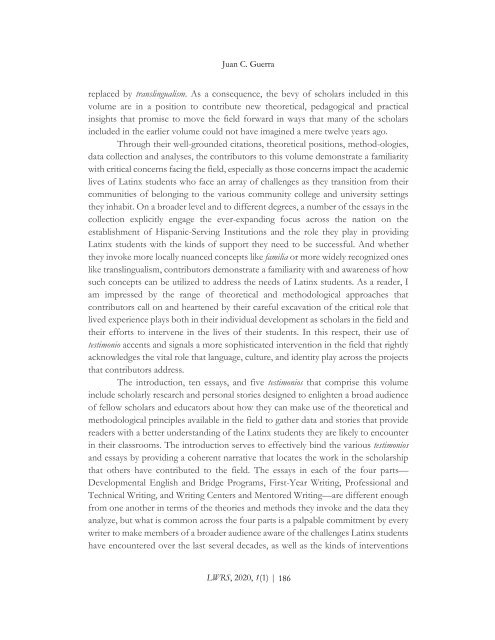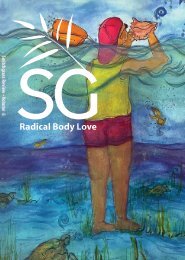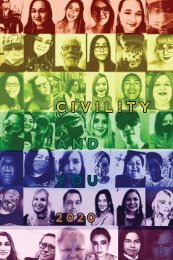LWRS June 2020 Volume 1, Issue 1
Inaugural Issue co-edited by Yndalecio Isaac Hinojosa and Isabel Baca
Inaugural Issue co-edited by Yndalecio Isaac Hinojosa and Isabel Baca
Create successful ePaper yourself
Turn your PDF publications into a flip-book with our unique Google optimized e-Paper software.
Juan C. Guerra<br />
replaced by translingualism. As a consequence, the bevy of scholars included in this<br />
volume are in a position to contribute new theoretical, pedagogical and practical<br />
insights that promise to move the field forward in ways that many of the scholars<br />
included in the earlier volume could not have imagined a mere twelve years ago.<br />
Through their well-grounded citations, theoretical positions, method-ologies,<br />
data collection and analyses, the contributors to this volume demonstrate a familiarity<br />
with critical concerns facing the field, especially as those concerns impact the academic<br />
lives of Latinx students who face an array of challenges as they transition from their<br />
communities of belonging to the various community college and university settings<br />
they inhabit. On a broader level and to different degrees, a number of the essays in the<br />
collection explicitly engage the ever-expanding focus across the nation on the<br />
establishment of Hispanic-Serving Institutions and the role they play in providing<br />
Latinx students with the kinds of support they need to be successful. And whether<br />
they invoke more locally nuanced concepts like familia or more widely recognized ones<br />
like translingualism, contributors demonstrate a familiarity with and awareness of how<br />
such concepts can be utilized to address the needs of Latinx students. As a reader, I<br />
am impressed by the range of theoretical and methodological approaches that<br />
contributors call on and heartened by their careful excavation of the critical role that<br />
lived experience plays both in their individual development as scholars in the field and<br />
their efforts to intervene in the lives of their students. In this respect, their use of<br />
testimonio accents and signals a more sophisticated intervention in the field that rightly<br />
acknowledges the vital role that language, culture, and identity play across the projects<br />
that contributors address.<br />
The introduction, ten essays, and five testimonios that comprise this volume<br />
include scholarly research and personal stories designed to enlighten a broad audience<br />
of fellow scholars and educators about how they can make use of the theoretical and<br />
methodological principles available in the field to gather data and stories that provide<br />
readers with a better understanding of the Latinx students they are likely to encounter<br />
in their classrooms. The introduction serves to effectively bind the various testimonios<br />
and essays by providing a coherent narrative that locates the work in the scholarship<br />
that others have contributed to the field. The essays in each of the four parts—<br />
Developmental English and Bridge Programs, First-Year Writing, Professional and<br />
Technical Writing, and Writing Centers and Mentored Writing—are different enough<br />
from one another in terms of the theories and methods they invoke and the data they<br />
analyze, but what is common across the four parts is a palpable commitment by every<br />
writer to make members of a broader audience aware of the challenges Latinx students<br />
have encountered over the last several decades, as well as the kinds of interventions<br />
<strong>LWRS</strong>, <strong>2020</strong>, 1(1) | 186





